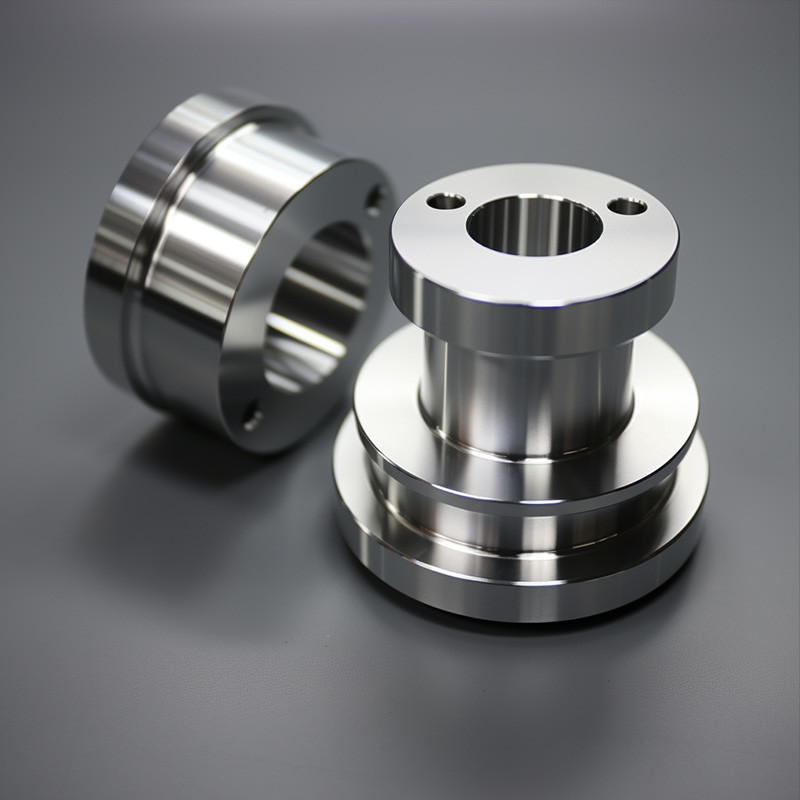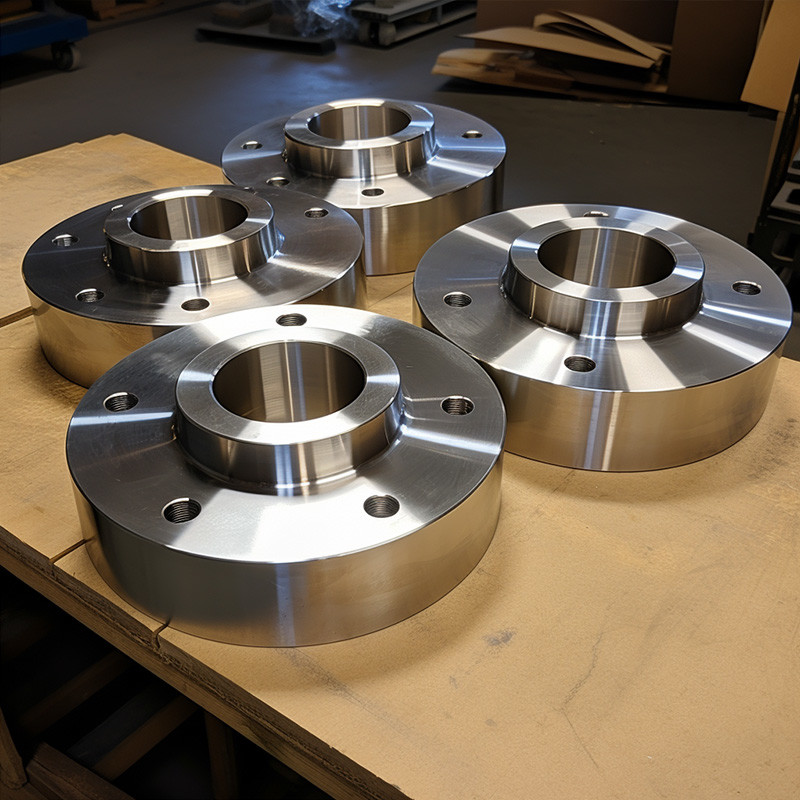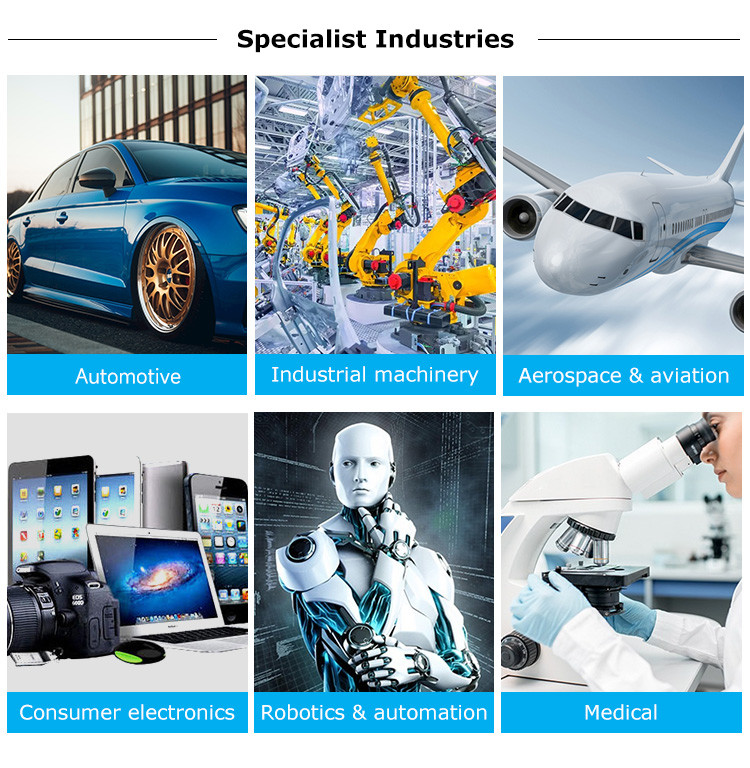Dongguan Yexin Intelligent Technology Co., Ltd. |
|
Verified Suppliers
|
|
CNC turning is a subtractive manufacturing process that involves the rotation of a metal rod while
a cutting tool is applied against the material to remove excess material and shape the final parts.
Our CNC lathes are equipped with live tooling capabilities, allowing for the machining of flat features
and holes directly into the workpiece. Additionally, we offer threading services for both the outside
diameter (OD) and inside diameter (ID) of the parts.
After the turning process, the parts can be left with visible tool marks for a functional finish or bead
blasted for a smoother appearance. Once the production run is complete, all parts undergo a
thorough inspection, are then carefully packaged, and promptly shipped to their destination.
Product Details
CNC turning is a versatile machining process that can effectively work with various materials.
These materials include metals like aluminum, steel, brass, and titanium, as well as plastics
such as acrylic, nylon, and polycarbonate.
| Common Materials | |
| Name | Description |
| Aluminum | High machinability and ductility, good strength-to-weight ratio. |
| Stainless steel | High tensile strength, corrosion and temperature resistant. |
| Mild steel | High machinability and weldability, high stiffness. |
| Brass | Low friction, excellent electrical conductivity, golden appearance. |
| Copper | Excellent thermal and electrical conductivity. |
| Titanium | Excellent strength to weight ratio, used in aerospace, automotive and medical industries. |
| POM | High stiffness, high accuracy, low friction, easy to machine. |
| ABS | Common thermoplastic, impact resistant, easy to machine. |
| Nylon | Excellent mechanical properties, thermal, chemical and abrasion resistant. |



| CNC Turning Tolerances | ||
| Limits for nominal size | Plastics | Metals |
| 0.5mm* to 3mm | ±0.1mm | ±0.05mm |
| Over 3mm to 6mm | ±0.1mm | ±0.05mm |
| Over 6mm to 30mm | ±0.2mm | ±0.10mm |
| Over 30mm to 120mm | ±0.3mm | ±0.15mm |
| Over 120mm to 400mm | ±0.5mm | ±0.20mm |
| Over 400mm to 1000mm | ±0.8mm | ±0.30mm |
| Over 1000mm to 2000mm | ±1.2mm | ±0.50mm |
| Over 2000mm to 4000mm | ±2.0mm | |
| *Please clearly indicate tolerances for nominal sizes below 0.5mm on your technical drawing. | ||
Typical Applications of CNC Turning
1. Transportation:
CNC turning services are indispensable in various transportation
sectors, spanning aerospace,
automotive, mass transit, rail and locomotive, military, and trucking industries.
These services contribute to the design of transportation equipment, producing items such as
headnuts, gear blanks, bearing blocks, levers, axles, and rotors.
2. Construction:
In the construction industry, CNC machines are utilized to
fabricate robust components that can
withstand heavy loads. This involves the production of bolts and screws from materials like
stainless steel and aluminum, crucial for assembly and fastening functions.
3. Vehicles:
CNC turning services find extensive application in crafting auto
parts, encompassing components
for engines (cylinder heads, connecting rods, camshafts), transmission parts (shafts, rings),
suspension components (sway bars, control arms, tie rod ends), and various items like bushings
and bolts.
4. Air Travel:
The aviation industry depends on CNC turned parts for customization
and creation, including
probes, joint connectors, fasteners, engine components, and aircraft parts.
Titanium, renowned for its ability to endure extreme temperatures, is often chosen for CNC turned
parts in aviation applications.

Company Profile


FAQ's
1. Why choose CNC machining?
CNC machining offers several advantages, making it a preferred manufacturing solution:
1. Speed: CNC machining is known for its rapid production
capabilities, allowing for the quick
creation of end-use parts.
2. Accuracy: The precision of CNC machining ensures high-quality
and accurate parts, meeting
tight tolerances and specifications.
3. Versatility: CNC machining is a versatile process suitable for a
wide range of materials and
part complexities. It can handle various geometries and designs.
4. Cost-Efficiency: Unlike traditional manufacturing methods, CNC
machining doesn't require
expensive hard tooling or elaborate set-ups, contributing to cost savings.
2. How much do CNC machining materials cost?
The cost of CNC machining materials is influenced by the selected material, with each material
carrying its own price tag based on unique physical properties. The variety of materials available
for CNC machining contributes to the diverse cost landscape.
For metal parts production, Aluminum 6061 emerges as the most cost-effective option.
If cost efficiency is paramount, ABS is the most economical choice. The ease of machining plays
a significant role in cost dynamics, exemplified by stainless steel. Its greater hardness relative
to aluminum increases machining complexity, resulting in a higher overall cost.
3. What's the general surface texture of CNC milled and turned parts?
CNC machining imparts specific surface textures to milled and turned parts.
As-machined milled parts generally possess a roughness of around 3.2μm
(with a potential improvement to 1.6μm for newer machines).
In contrast, turned parts showcase a finer surface texture, achieving a roughness of 0.8μm.
Remarkably, this enhanced surface quality is achieved without necessitating adjustments to
the machining speed.
4. What are your tolerances for machined parts?
Local tolerances of +.005”/- .005” are applicable across most geometries in metals, with a
variation of +/- 0.010" for plastics. Tolerances may differ for large parts, particularly concerning
flatness over large parts after heat treatment.
For "As Milled" finish, a minimum surface finish of 125 is required for CNC parts.
All fabricated parts adhere to a dimensional tolerance of 0.010” and an angular tolerance of 1°.
Tapped holes not explicitly called out as features on the quoted CAD model may be machined to
the diameters specified in that model.
Surface treatments (e.g., anodize, bead blast, iridite, powder coat, etc.) will not be applied unless
explicitly paid for and acknowledged.